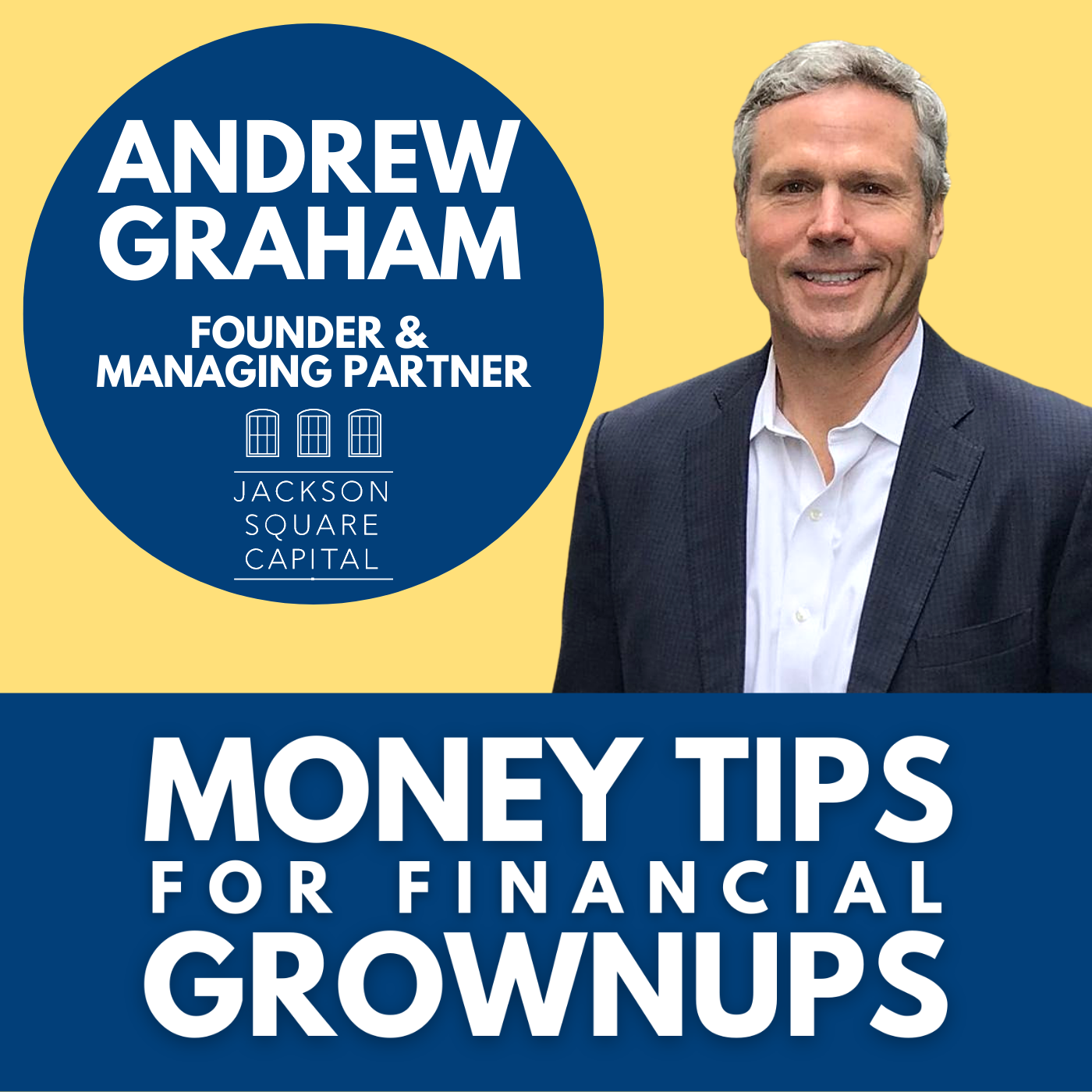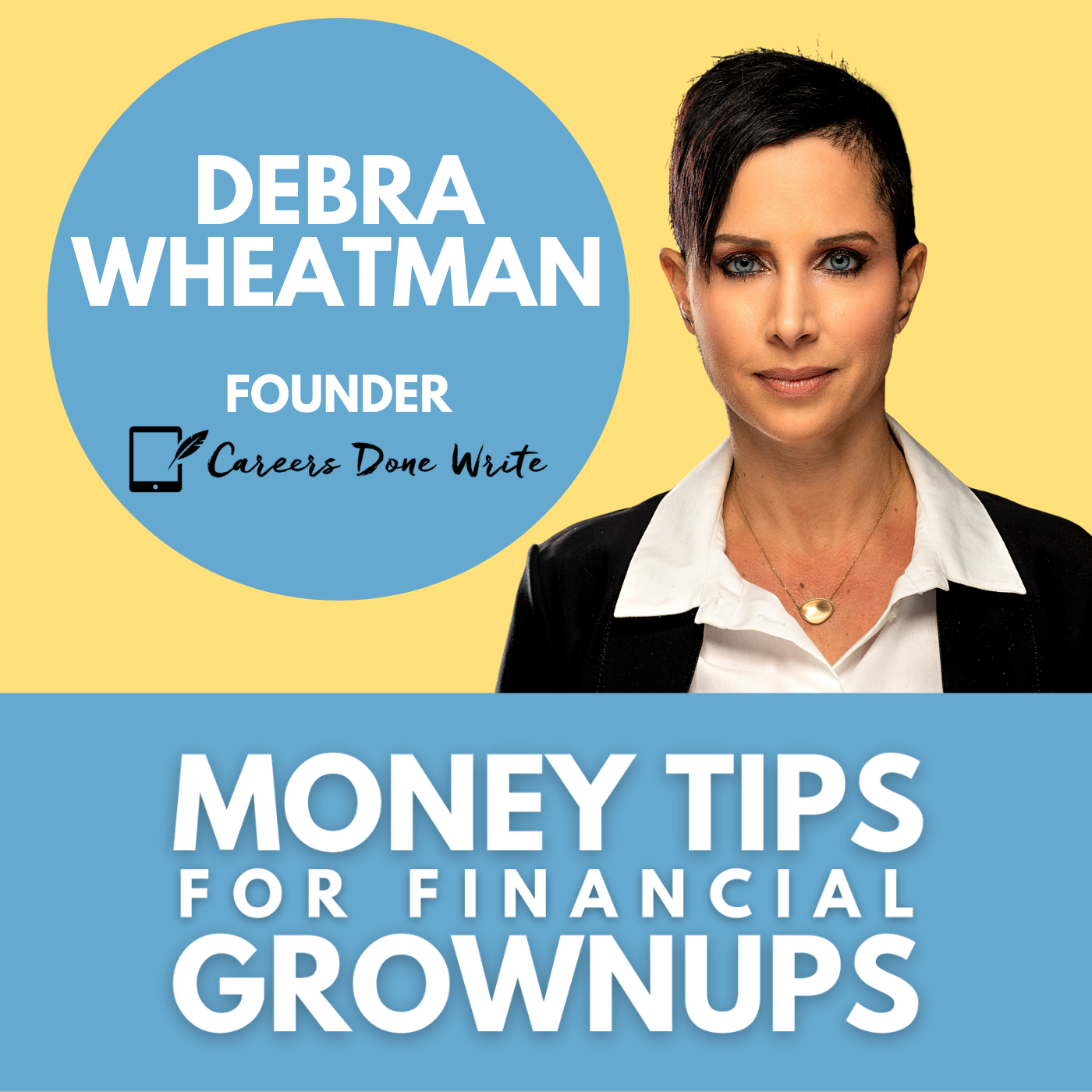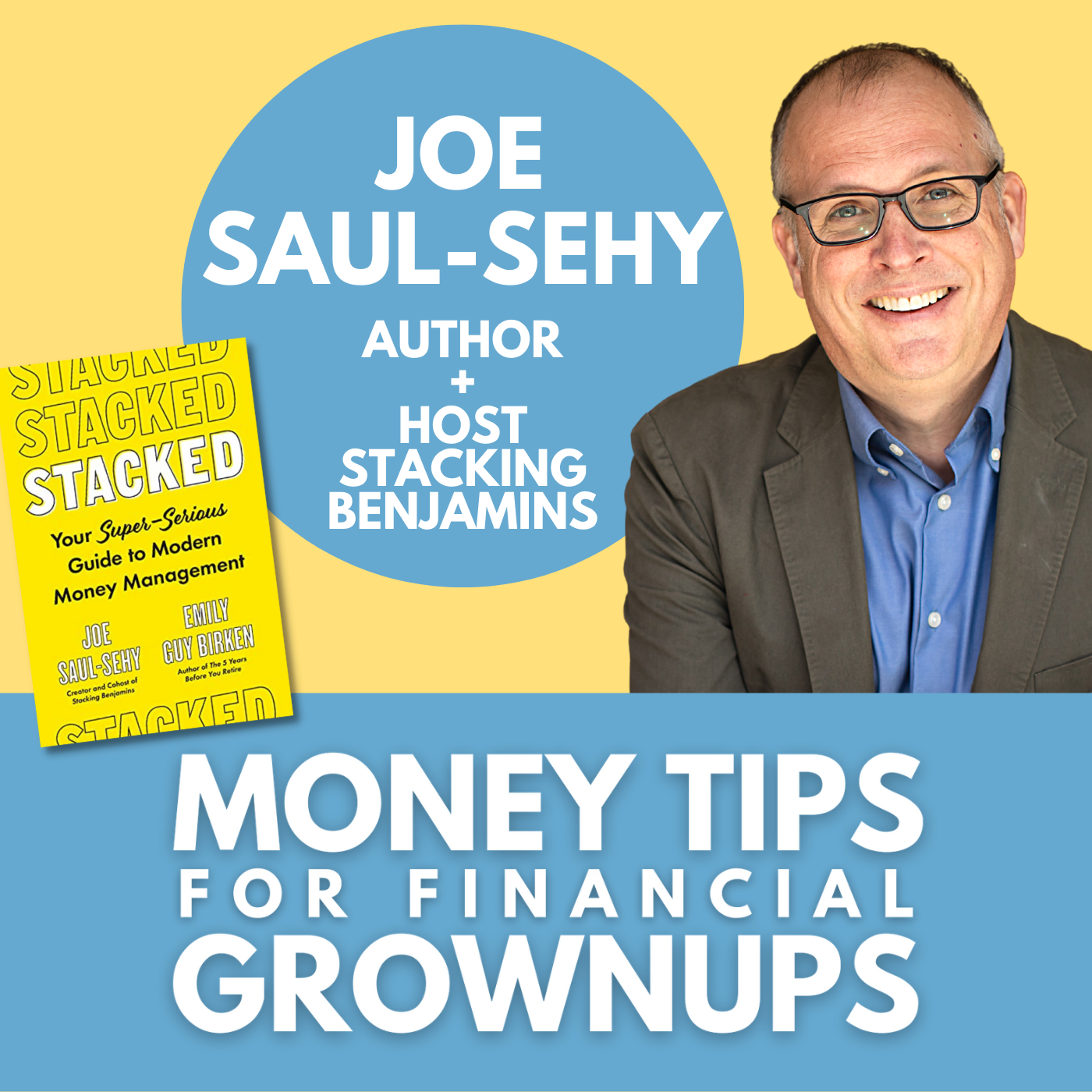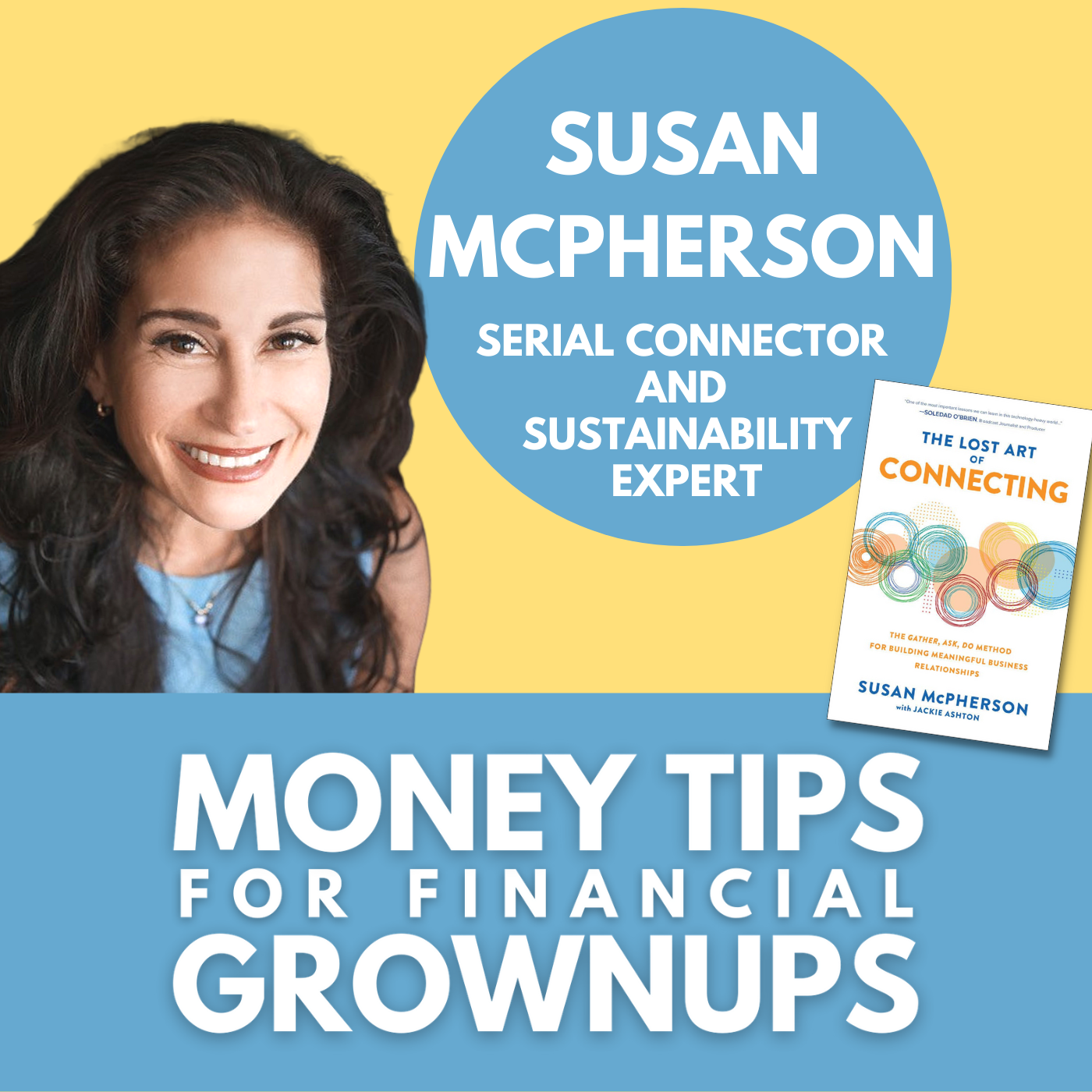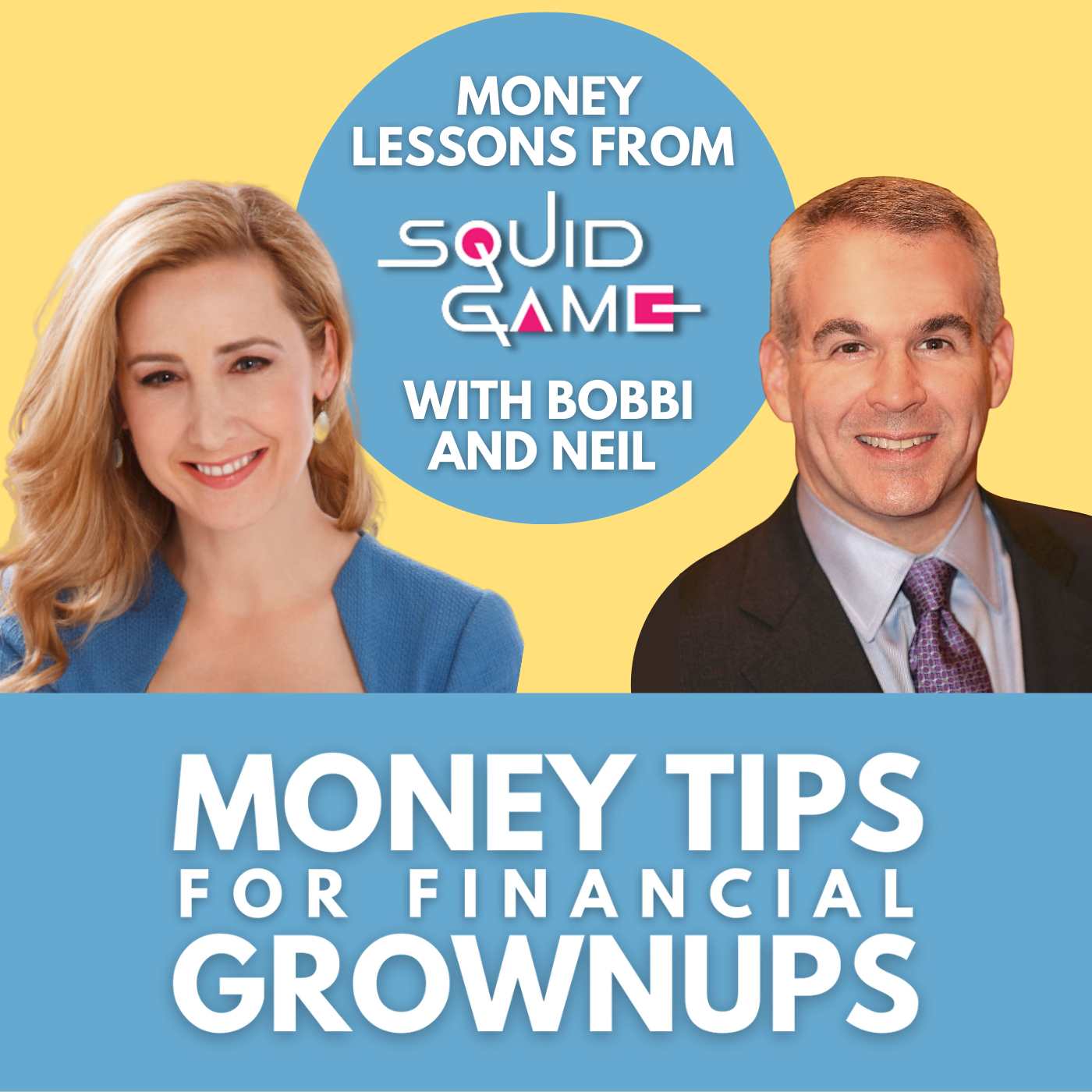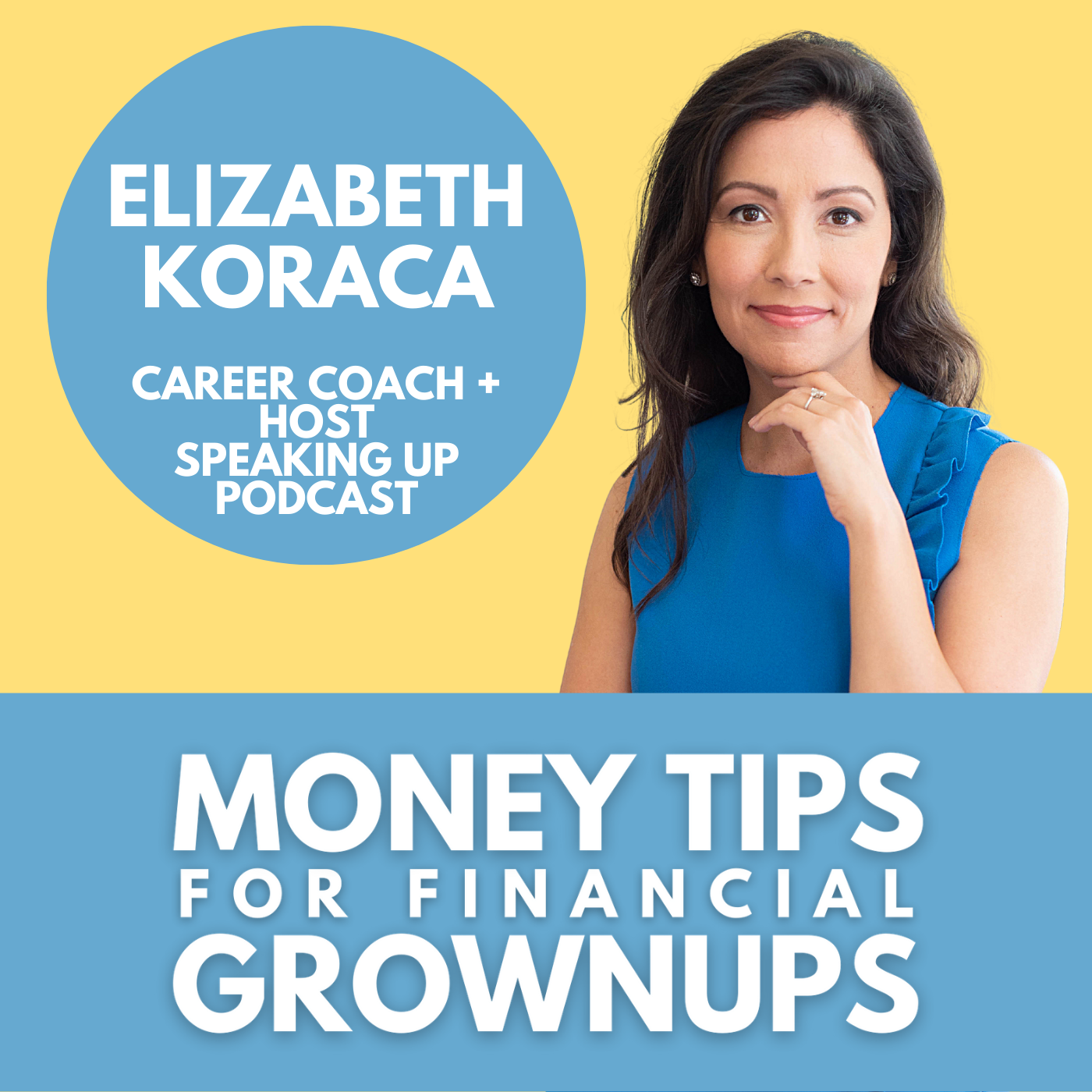Follow Joe!
Follow Bobbi!
Did you enjoy the show? We would love your support!
Leave a review on Apple Podcasts or wherever you listen to podcasts. We love reading what our listeners think of the show!
Subscribe to the podcast, so you never miss an episode.
Share the podcast with your family, friends, and co-workers.
Tag me on Instagram @bobbirebell1 and you’ll automatically be entered to win books by our favorite guests and merch from our Grownup Gear shop.
Full Transcript:
Bobbi Rebell:
I know the holidays are a time we're all supposed to get excited about, but sometimes it just feels like I can't celebrate until I get through my never-ending to-do list. That includes gifts. It's exhausting. I mean, I love the smile on people's faces when I get them something that's going to be meaningful and that they love, but the truth is, it's also really hard, and I'm really getting tired of giving people the same old, same old. I mean, I feel like we're finally emerging from this pandemic, and I just want something that will get them to smile.
Bobbi Rebell:
My team and I have been working really hard to up the ante over at Grownup Gear with some super fun new stuff. My personal favorite, the baby bibs and the onesies with phrases like, "I can't believe you are the grownup, either," and new colors and designs of our top-selling Generosity line.
Bobbi Rebell:
For the holidays, if you spend just $50 on any of the items from our Generosity Collection, we will gift you a $10 gift certificate that you can spend on something to be generous to, well, yourself. Just use code HOLIDAY, H-O-L-I-D-A-Y, and thanks again to everyone supporting Grownup Gear. Your business helps support projects like this podcast, which remain free for all of you. Happy Holidays, guys.
Joe Saul-Sehy:
You play the reward game once you have your act together. I had no business playing the reward game before. Now, I'm getting all that money back that I gave them by making sure that I have two drinks on them every time I fly.
Bobbi Rebell:
You're listening to Money Tips For Financial Grownups with me, Certified Financial Planner, Bobbi Rebell, author of How to be a Financial Grownup, and you know what? When it comes to money, being a grownup is hard, but together, we've got this.
Bobbi Rebell:
Hey, grownups. Do you always make sure you get your money's worth, especially when you paid for something and you feel like it's kind of your revenge reward kind of thing? So for example, and this is something we're going to talk about in the episode, in the interview, if you've earned status on a credit card, are you going to use every single perk and get every possible freebie? Even if it's not something that you necessarily would've wanted, otherwise? I mean, there's no reason not to. Money is funny that way, right?
Bobbi Rebell:
Also funny is Joe Saul-Sehy. He is the co-host of the Stacking Benjamin's Podcast and the co-author of Stacked: Your Super-Serious Guide to Modern Money Management, out today, by the way, if you are listening to this episode on the day that it drops. If you've been listening, by the way, to this podcast for a while, you know that name because Joe and I used to have a little podcast together, called Money With Friends, that we put on hold because, well, we both got book deals. So, Joe stopped by to promote his book, and I, of course, took the opportunity to put him on the spot with a little game of financial free association. Joe was kind enough to play along, and you'll get a kick out of this, I promise. Here is Joe Saul-Sehy.
Bobbi Rebell:
Joe Saul-Sehy, my friend, you're a financial grownup. Welcome to the podcast.
Joe Saul-Sehy:
It feels like old days. We're back on together, Bobbi. We got the band back together.
Bobbi Rebell:
We are back on, and typical of me, I'm literally multitasking as we start because I didn't check all your audio stuff, but you're all good. Of course, you are.
Joe Saul-Sehy:
And typical of me, I am about 20 minutes late.
Bobbi Rebell:
That is typical of you, yes. Okay. So, we know we are still ourselves, very much so. This is a big occasion. We stopped our mutual podcast because we both, which was called Money With Friends, which was an amazing podcast, and maybe one day it will be revived, but we stopped it because we each got these book deals. So of course, you had to be first. Your book is coming out in late... December 28th. So first of all, congratulations for getting it done.
Joe Saul-Sehy:
Thank you.
Bobbi Rebell:
No one doubted it at all.
Joe Saul-Sehy:
The first time I tried it, it took 10 years. So as you know, I got a great co-author. Emily Guy Birken kind of helped me get through the process, which was fantastic.
Bobbi Rebell:
Okay. So Joe, you beat me to the punch. Your book is coming out first. It is called Stacked: Your Super-Serious Guide to Modern Money Management. I like to keep you on your toes, so we're going to play a game, and it's called Financial Free Association. What I'm going to do is, I'm going to pull some words and catch phrases out of the book, Stacked, and you're going to tell me a money tip or a money lesson from that phrase. Just so everyone knows, this has not been rehearsed. I am throwing this at Joe, spontaneously. He's doing a little crying on the screen, which you guys can't see, but it's going to be all worth it because I know he's going to come up with some amazing advice from these little catch phrases and words from his book, Stacked, which by the way, again, co-written with Emily Guy Birken, who we have to give all the credit for the book, and Joe is wonderful as the face of the book, promoting it here today with us. All right. So, here we go. Number one, financial fasting.
Joe Saul-Sehy:
Financial fasting is when you to take a break, just like when you do a regular fast. You take a break from spending to really see what comes out. What's important to spend money on, and what's not important to spend money on? So when you do a financial fast, you say, "You know what? I'm no longer going to maybe," along with eating, "I'm no longer going to eat at restaurants. I'm no longer going to buy stuff I don't need," outside of, let's say, groceries to live, right? But even before groceries to live, if you're really doing the fast, depending on how big a fast you're doing, you might not buy groceries until you clean everything out of the freezer and the refrigerator. You go through everything before you end the fast. A fast is a way to figure out what's important in your life and what's not, so when you create the real budget, you can design it around those things that are important to you and avoid all the stuff that's not.
Bobbi Rebell:
Number two, electricity Jumanji.
Joe Saul-Sehy:
My kids are 26 now, but this is back when they were about eight-years-old, and at that time, bills came in the mail once a month for the utility bill for electricity. So what we did was, we just took out some graph paper, and you could still do this, right, with your monthly... if you get the electronic notice of what your bill is going to be each month. We took out some graph paper, and we played a limbo game. We played Jumanji. It's, how low can you go with this electric bill? And it was awesome because I went from me being the only one who cared.
Joe Saul-Sehy:
Guess what the prize was? There was no prize. There was no prize. It was just, let's see if we can do this together and make it a game. How low can we go? Can we beat last month? And just that little bit of motivation, I would be watching a television, and I'd leave the room to go get a snack, and I come back, and my daughter's got the TV off. She's like, "Dad, you left the room. You got to turn the TV off. You're wasting electricity." So, my kids went from not caring at all to caring a lot, and it wasn't through yelling. It was through involving my kids in what the real goal was for the family.
Bobbi Rebell:
I'm processing that. I'm seeing how I can apply that to my family. It's hard.
Joe Saul-Sehy:
It is hard.
Bobbi Rebell:
We're going to work at it. All right, for number three, we're going to pretend it's the 1970s. Okay. Do the hustle.
Joe Saul-Sehy:
I had a great interview with a guy that, Bobbi, you know I've had a crush on for a long time, Austin Kleon, who wrote Steal like an Artist, and he's this business person meets artist, and I asked him about side hustles and he said, "You know what? Time away from your job actually informs your job." And he said, "It's when I play guitar that I get great ideas for my business. It's not when I'm in the trenches doing the business. It's when I'm away." He said, "So, I really like side hustles because they kind of inform each other. It keeps you fresh. And, if it's for something small, like I want to pay off this credit card that I screwed up with, or I want to pay for this trip without having it come out of the budget. I want it to be extra, the side hustle can do all of that."
Bobbi Rebell:
Number four, understanding the cube, understanding the cube.
Joe Saul-Sehy:
Oh, this is fantastic. I had a mentor tell me this, that whenever you're in a discussion, we all are trying so hard to get whoever we're in this discussion with to understand our point of view, and yet every discussion that we have is a cube. You're sitting, Bobbi, on one side of the cube, and I'm sitting on the other side of the cube, and it's imaginary. My mentor told me, he said, "Whoever sees the other person's side of the cube and looks at it from their point of view, from the other person's point of view, that person will be the first person to really be able to bridge that gap between the two of us." So when you're in any negotiation, and in the book, we talk about it in terms of a salary negotiation, right?
Joe Saul-Sehy:
Understand what your boss wants. Your side of the cube is I got a lot of bills. I want more money. Daddy needs new shoes, whatever the thing is, that's what we want, but your boss wants more productivity, wants to understand how they tell their boss to give you a raise. What are you going to do for the department then that you're not doing for them now? Understand the other side. There's a truism that mom has said for a long time, that this goes back to, which is seek first to understand, and then to be understood, and that really is what the cube is all about.
Bobbi Rebell:
This one's a bit of a twist. Custom stickers, as in something Emily wanted. Custom stickers.
Joe Saul-Sehy:
You pulled for these, man. We get tripped up by credit card debt, and Emily, as a young college student, was like, "You know what? I'm not going for the Frisbee, or the pizza, or the stadium blanket," that they would used to have on campus. As you know, Bobbi, they can't do that anymore. But back in the day, man, a lot of us got in trouble for a free, quote, free Frisbee or a free stadium blanket, and they still offer these things even through the mail now. So, Emily was very proud of herself that she did not get caught up in credit card debt by the usual means.
Joe Saul-Sehy:
And then, she got this letter in the mail from a credit card company, and it said that she could get stickers, that she would be able to choose what her credit card looked like on the front, and if you want to get Emily, you just got to offer her stickers, and she's yours. So, Emily ended up in credit card debt, like the rest of us, over custom stickers, which was really to make the bigger point that credit card companies have done so much research on you, and they know what your hot button is, and if they don't, they're going to find it and realize that there's a serious game being played against you when it comes to credit cards. So, you need to play a serious game on your end, as well.
Bobbi Rebell:
All right. Next, we've got tipsy flying as in two drinks at the airport lounge, two drinks at the airport lounge, Joe, courtesy of American Express?
Joe Saul-Sehy:
Two drinks at the... Is this talking about getting the reward cards?
Bobbi Rebell:
You talk about the fact that you always get at least two drinks...
Joe Saul-Sehy:
Yes.
Bobbi Rebell:
... when you go to the Amex lounge.
Joe Saul-Sehy:
This is...
Bobbi Rebell:
So, you're always a little tipsy on the airplane, Joe, but you got your money's worth. That's the important thing.
Joe Saul-Sehy:
Yes.
Bobbi Rebell:
It's okay to be a little bit tipsy, as long as you get your money's worth.
Joe Saul-Sehy:
Well, no. Actually, the bigger point there was actually that maybe I wrote that wrong, because I didn't want that to be the point. The point, though, was I was a mess with credit cards when I was, like we just talked about with Emily, I was a disaster with credit cards. I had a bunch of credit card debt. I also went for the reward point program when I had no business doing that. I'm paying 25% interest, and I'm thinking, "Yeah, I'm getting these rewards." Well, I'm paying way, way over the amount that I was paying then in interest for the rewards I was getting. I was funding my own quote rewards. Well, now, I'm the opposite.
Joe Saul-Sehy:
Now, I have this badass credit card that gets me into the lounges, and I love... It's funny. My son just went to one of the lounges with us. He went as my guest on a flight that we just took, and he's like, "Oh, I've heard about these. I don't really care," and then we went up into the lounge, and 10 minutes in, Bobbi, he's like, "How much did this cost? What is this? Really? I can eat whatever I want over here and..." Yes. You can do all that. You have your own little private area. It's very nice. They take care of you. You're in this calm environment. I now go to the airport, sometimes, 45 minutes early, just so I can have a good meal before my flight, relax a little bit, and to your point, have a couple drinks. But my point is, you play the reward game once you have your act together. I had no business playing the reward game before. Now, I'm getting all that money back that I gave them by making sure that I have two drinks on them every time I fly.
Bobbi Rebell:
All right, let's stick with the credit card theme here. Beware cancel culture. Beware of cancel culture.
Joe Saul-Sehy:
Yeah. If you cancel a credit card that's your oldest credit card, that may lower the amount of time that they think that you've had credit. I actually had this horrible credit card from the mid '90s, Bobbi, that I only last year finally canceled. I finally canceled it last year, and it's because I've got plenty other credit. My length of credit's fine without it, so I went ahead and got rid of that. What is interesting, though, because like everybody or like a lot of people, my credit cards also show me my credit score all the time now, which is a cool perk of a lot of cards. When I canceled that card, still went down a couple points. It went from like 820 to 815, and nothing happened, besides the fact that I canceled a credit card.
Bobbi Rebell:
That's so wrong.
Joe Saul-Sehy:
It's stupid.
Bobbi Rebell:
But it is what it is. Like a lot of these things, it's wrong. It shouldn't be, but we got to work with what...
Joe Saul-Sehy:
Yeah.
Bobbi Rebell:
... we got to work with.
Joe Saul-Sehy:
Know how the game's played.
Bobbi Rebell:
Next up, Einstein-approved.
Joe Saul-Sehy:
There's this phrase that's been attributed to Einstein, which is about compounding interest is the eighth wonder of the world. A lot of people say, Einstein said that. Well, Einstein didn't really say that. However, it still made our book because it's so often attributed to him, and we talked about here's this guy who's splitting atoms for fun, doing these crazy things with tweezers and atoms that nobody else can do, and he's bragging, supposedly, about compounding interest, and what is compounding interest? People talk about it different ways.
Joe Saul-Sehy:
Here's the way Emily and I talk about it. Your money, when you get interest, it's like your money, Bobbi had a baby, right? And that's interest, but compounding interest is when your money baby has a baby, and then your money grandkid has a baby, and you're in with this $1. You're creating this lineage of compounding interest, so that... I'm as lazy as the next guy, so that I can sit on my butt at home, and I've got my money out there. All my money babies are out there working for me. How great is that? And so, that strategy of building money on your money, that's Einstein-approved.
Bobbi Rebell:
All right. Last one for the win, analysis paralysis.
Joe Saul-Sehy:
Yes. Oh, I play board games as you know, Bobbi, and we've got this friend who takes all day to do anything, and it kills the game. That's fine. Killing game nights, okay, but taking so long to make a decision that you miss the opportunity is absolutely horrible, and I have a coach who taught me recently that you should work by the 80% rule, which is if it's 80%, right and the way that you should go, then you got to get moving that way, and I like that because movement, even the wrong movement, teaches you something. If you learn that this was the wrong way to move, it's easy, then, to tweak, right? We'll tweak. We'll either not make the same mistake, or we'll tweak it to be better next time, or we can tweak it this time. Most of the time, movement is not going to hurt you, unless it's second-guessing your strategy. That's the one place where sitting in one place is good, but too many people suffer from... I need more information. I need more information. It's just, I don't want to make a decision.
Bobbi Rebell:
So true, and so many things just don't happen in life because we just don't act, and I think one thing that I like about Sacked is that it will hopefully inspire lots of people to act. Tell us more about... Wait, I have to say the whole title properly now. We practiced this. Stacked: Your Super Serious Guide to Modern Money Management. Did I say it right, Joe?
Joe Saul-Sehy:
You did. So when you're pitching the book, I was telling these editors from these different publishing houses. So here's the idea. I'd like to take the Cub Scout Wolf Guide, combined with the Hardy Boys Detective Manual, but make it serious and about money for adults. What do you think? And I thought, they're going to think I'm crazy, and the world's biggest publishing house said, "We're in. That sounds awesome." The book is meant to be very easy at the beginning, because I don't know where you're starting from, but at the end, it goes over some very seriously complex things. We start off with stacking your first Benjamin, and then stacking Benjamins, and then protecting your Benjamins, and then stacking stacks on your stacks of Benjamins. It isn't meant to be read from beginning to end. It's meant to be this guidebook, like I had when I had the Hardy Boys Detective Manual. I'd pick it up and learn how to...
Joe Saul-Sehy:
When my mom touched a doorknob, my brother and I would go over with the tape. Right? We'd make that we got that fingerprint, because you never knew what mom was doing. I wanted people to carry the book around that way. So, it's Stacked. It's out today, which is awesome. We're so excited, and it's available everywhere. Please, if you're going to buy it, buy it from your local bookshop, if at all possible, and we've got lots of links on our site, stackingbenjamins.com/stacked. I'm also going to be going on the road, 42 cities. I'm going to come see Bobbi, and we're going to see different cities. So if you want to follow us and come hang out and nerd out with other like-minded people, see what city is close to you, and come hang out with us in the next three months.
Bobbi Rebell:
Thanks, Joe.
Joe Saul-Sehy:
Thank you.
Bobbi Rebell:
So much great stuff there to get us set up for the new year. I love the part about Joe making sure to get the most out of those reward cards, because like I talked about in the open, we totally do things that we can get for free, even if we don't actually want them as is often the case with things like free food, or in Joe's case, free alcohol. We just like the idea that it's free, and we don't want to miss that opportunity, even if we don't actually want the thing.
Bobbi Rebell:
So I'm curious, what freebies do you guys take, just because they're free and maybe you wouldn't, if you actually were paying for them? Probably a lot, but you kind of feel like you earned it, right? So those kind of things, DM me on Instagram at @BobbiRebell1 or on Twitter @BobbiRebell, and I'm going to have some freebies for all of you in the new year, as I get ready to release my book, called Launching Financial Grownups. Get on my newsletter to be the first ones to hear about them. You can sign up by going to my website, bobbirebell.com.
Bobbi Rebell:
In the meantime, Stacked is now out, so get your copy, and get yourself set up for the new year in a really good way. Big thanks to my friend, Joe Saul-Sehy, for helping us all be financial grownups.
Bobbi Rebell:
Money tips for Financial Grownups is a production of BRK media, LLC, editing and production by Steve Stewart. Guest coordination, content creation, social media support and show notes by Ashley Wall. You can find the podcast show notes, which include links to resources mentioned in the show, as well as show transcripts, by going to my website, bobbirebell.com. You can also find an incredible library of hundreds of previous episodes to help you on your journey as a financial grownup.
Bobbi Rebell:
The podcast and tons of complimentary resources associated with the podcast is brought to you for free, but I need to have your support in return. Here's how you can do that. First, connect with me on social media. @BobbiRebell1 on Instagram and @BobbiRebell on, both, Twitter and on Clubhouse, where you can join my Money Tips for Grownups club. Second, share this podcast on social media, and tag me, so I can thank you.
Bobbi Rebell:
You can also leave a review on Apple Podcasts. Reading each one means the world to me. You know what? It really motivates others to subscribe. You can also support our merch shop, grownupgear.com, by picking up fun gifts for your grownup friends and treating yourself, as well. And most of all, help your friends on their journey to being financial grownups by encouraging them to subscribe to the podcast. Together, we got this.
Bobbi Rebell:
Thank you for your time and for the kind word so many of you send my way. See you next time, and thank you for supporting Money Tips for Financial Grownups.









